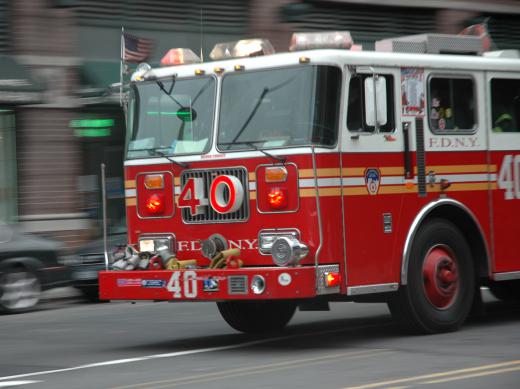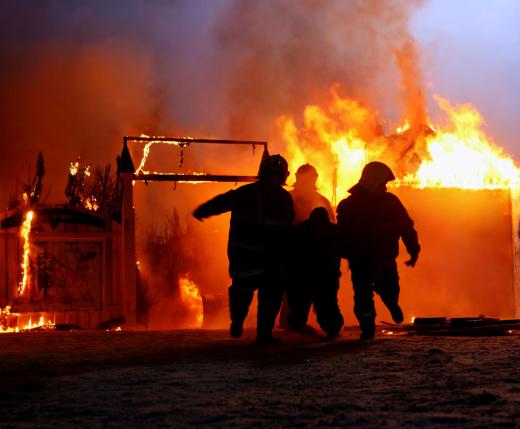A fire hook is a tool which is designed to be used by firefighters who need to be able to gain access to a space or clear debris. Fire hooks are used in urban as well as rural areas and are commonly stocked in the equipment carried on fire trucks. There are a number of different designs available, with various heads for the hook which have been engineered for particular operations. Numerous companies make and sell fire hooks and many accept bulk orders from fire departments which would like to order in volume.
The fire hook is a very versatile tool. It can be used as a probe or prying tool to get around doors, windows, and other openings. It can also be used to quickly tear through walls and other obstacles, and for tasks such as cutting into ceilings and floors, tearing into ventilation systems, and so forth. The head of a fire hook may include blades or serrations for the purpose of cutting quickly and efficiently, and to reduce the risk that the hook will become trapped.

Some specialty training is needed to learn how to use a fire hook effectively and safely. It is important to be aware of the mechanics of how fires work, as it is possible to speed the spread of a fire by taking down a wall or cutting an opening which allows more oxygen into a space. In addition, many fire hooks are tough enough that they can damage or remove structural supports, posing a safety risk if a firefighter does not use the tool appropriately. The hook can also injure the operator or someone else working in the area, which is another issue of potential concern.

In addition to being used during a fire to gain access, a fire hook can also be useful for probing as a fire settles. The hook can be used to move and push debris to confirm that there are no hidden embers, and to spread debris for the purpose of allowing it to cool. Fires can restart minutes or hours later if embers or hot spots remain, and these may not be visible with a quick visual examination, making a fire hook a useful tool for checking to see that a site is safe before pronouncing it clear.
Some fire departments have developed custom fire hooks to meet their specific needs. Sometimes these designs catch on and enter mass production.
Ever since she began contributing to the site several years ago, Mary has embraced the exciting challenge of being a About Mechanics researcher and writer. Mary has a liberal arts degree from Goddard College and spends her free time reading, cooking, and exploring the great outdoors.

